Europe's WHO Funding Shortfall

Table of Contents
Europe's WHO Funding Shortfall: A Growing Concern for Global Health
Europe's contribution to the World Health Organization (WHO) is facing a significant funding shortfall, raising serious concerns about the organization's ability to effectively address global health challenges. This shortfall has far-reaching implications, impacting the WHO's capacity to respond to outbreaks, implement vital health programs, and strengthen health systems worldwide. This article will delve into the reasons behind this funding gap, its consequences, and potential solutions.
Understanding the WHO Funding Mechanism
The WHO relies on a diverse range of funding sources, including assessed contributions from member states and voluntary contributions from governments, foundations, and individuals. Assessed contributions are calculated based on a country's capacity to pay, while voluntary contributions are earmarked for specific programs or initiatives. A significant portion of the WHO's budget stems from assessed contributions, making these crucial for core functions and operational stability.
The Extent of Europe's Funding Gap
While precise figures fluctuate yearly, reports consistently indicate a substantial shortfall in funding from European nations relative to their economic capacity. This isn't merely a matter of insufficient funds; it represents a relative decline in contribution compared to other regions and to the WHO's growing needs. This shortfall threatens to undermine the WHO's effectiveness in tackling pressing global health issues, from pandemics to chronic diseases.
Factors Contributing to the Shortfall
Several factors contribute to Europe's WHO funding shortfall:
- Budgetary Constraints: National governments face competing demands on their budgets, often prioritizing domestic health spending over international contributions. Economic downturns can exacerbate this issue.
- Shifting Priorities: Changes in political priorities and leadership can result in decreased funding for international organizations.
- Lack of Awareness: Insufficient public and political awareness of the WHO's crucial role and the consequences of underfunding can hinder adequate resource allocation.
- Inefficient Funding Mechanisms: The complexities of the WHO's funding system and the allocation of voluntary contributions can sometimes lead to inefficiencies and a lack of transparency.
The Consequences of Underfunding
The consequences of Europe's WHO funding shortfall are far-reaching and impactful:
- Weakened Pandemic Preparedness: Reduced funding hinders the WHO's ability to prepare for and respond to future pandemics effectively, potentially leading to more widespread outbreaks and greater economic damage. This was starkly illustrated during the COVID-19 pandemic.
- Compromised Health Programs: Essential health programs, including those focused on immunization, disease surveillance, and maternal and child health, suffer from reduced funding, leading to preventable illnesses and deaths.
- Undermined Global Health Security: A weakened WHO undermines global health security, jeopardizing the collective effort to address health threats that transcend national borders.
- Increased Health Inequalities: Underfunding disproportionately impacts low- and middle-income countries, exacerbating existing health inequalities.
Potential Solutions and Future Outlook
Addressing Europe's WHO funding shortfall requires a multifaceted approach:
- Increased Assessed Contributions: European nations should increase their assessed contributions to the WHO in line with their economic capacity.
- Enhanced Transparency and Accountability: Improved transparency and accountability in the WHO's budget management and program implementation can enhance trust and encourage increased funding.
- Strengthened Political Will: Stronger political commitment and leadership are essential to secure adequate funding and prioritize global health security.
- Public Awareness Campaigns: Raising public awareness about the importance of the WHO and the consequences of underfunding is crucial to generate broader support for increased funding.
- Strategic Partnerships: Exploring new and innovative partnerships with private sector entities and philanthropic organizations can supplement core funding.
The future of global health depends on a well-funded and effective WHO. Addressing Europe's funding shortfall is not merely a financial issue; it is a matter of global health security and equity. It demands immediate attention from European governments, civil society organizations, and concerned citizens alike. The time for decisive action is now.

Thank you for visiting our website wich cover about Europe's WHO Funding Shortfall. We hope the information provided has been useful to you. Feel free to contact us if you have any questions or need further assistance. See you next time and dont miss to bookmark.
Featured Posts
-
Arched Glass Fireplace Doors
Jan 22, 2025
-
Alcaraz Falls To Novak Late Game
Jan 22, 2025
-
Target Down Onyx Storm Demand
Jan 22, 2025
-
Fake Fireplaces That Look Real
Jan 22, 2025
-
Championship And League One Live 8 Matches
Jan 22, 2025